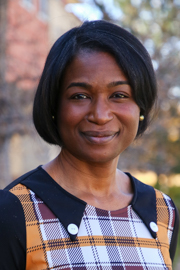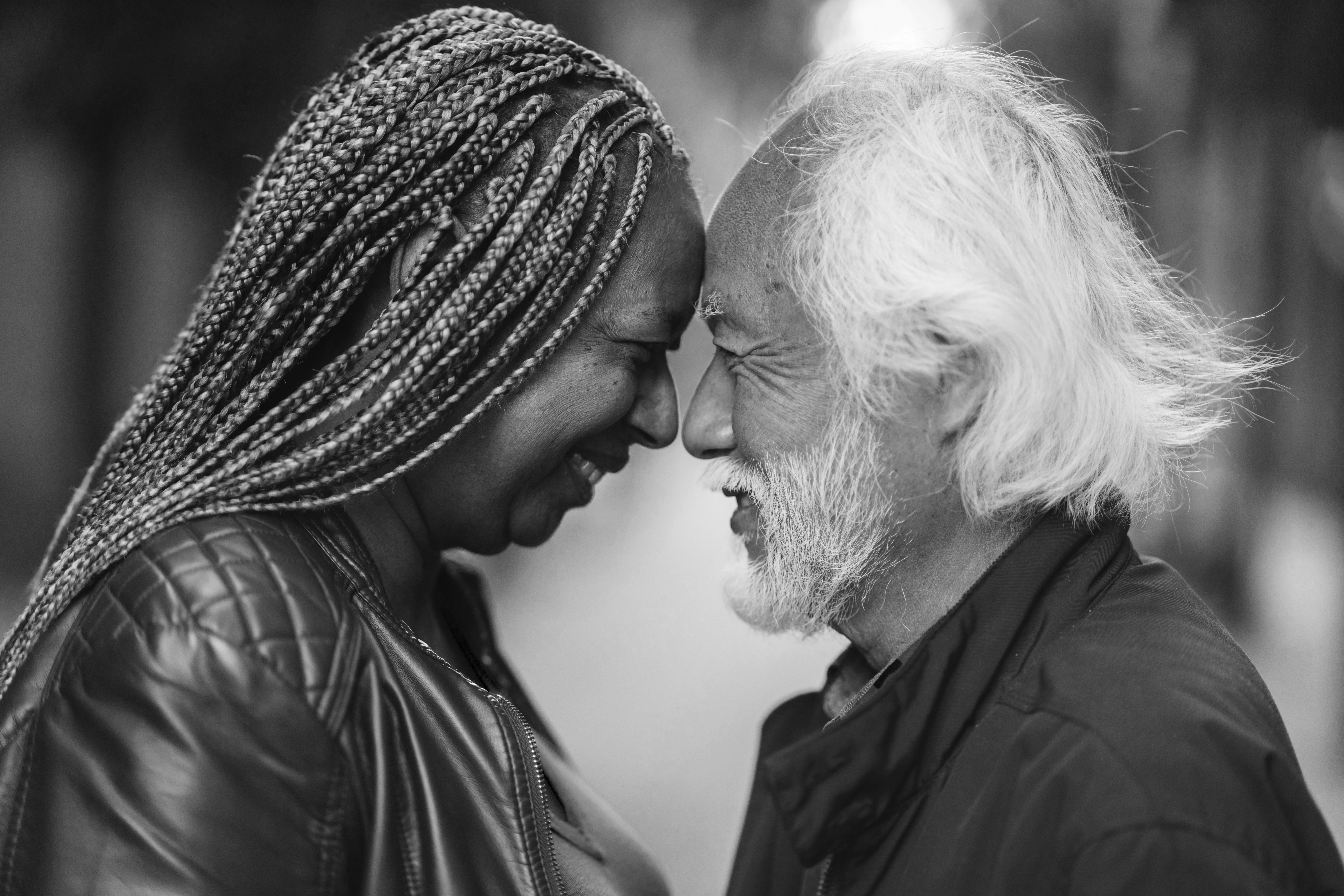Preparing for Redemptive Relationships
Originally published in Engage Magazine, 2023-24
The concept of redemptive relationships captivated me shortly after arriving at Denver Seminary, where redemptive relationships are firmly rooted as a core commitment. Here, we move toward others believing they themselves are new creatures in Christ, rousing humbleness, accepting brokenness, and gaining a willingness to evaluate themselves honestly based on the truth of the gospel. We deliberately relate compassionately toward those different from ourselves.

The more I consider this core commitment, the more my Christian imagination becomes inspired to animate redemptive relationships as a viable option that helps people to live well within and across human difference. There is significant theological discourse and social science research that identifies strategies to transform destructive human relationship dynamics into constructive ones. The most prominent methods include cultural humility, inter-group and inter-faith dialogues, racial reconciliation, and diversity, equity, inclusion, and belonging initiatives. Research has consistently shown that modifying destructive relationships and experiencing more constructive interactions includes an individual awareness of the plausibility of injustice and the probability that people can perpetuate social inequalities.1 Yet, some people still appear resolute to benefit from power and privilege while other people are trapped in a cycle of exploitation and marginalization. I imagine that constructive relationships function as a core part of fostering redemptive relationships.
It seems relevant to include another approach to help people relate well. Imagine the possibility of the more than two billion plus adult Christians inhabiting the globe practicing redemptive relationships. It may be difficult to envision us living well with people different from ourselves within the current social context. Thankfully, Scripture offers clarity and instruction to compensate for our limited imaginations.
A Damascus Awakening
From Genesis to Revelation, the pathway to move relationships beyond constructive to redemptive is illuminated in the lives of those such as Hannah, David, Zacchaeus, the Samaritan woman, and Saul. There are many other examples, but Saul of Tarsus’ experience on the road to Damascus seems to make him an exemplar. Saul’s encounter with the voice of Jesus re-routed his life’s trajectory from persecutor of Christians to the Apostle Paul. Prior to his encounter with Jesus on the road to Damascus, Saul was traveling to imprison and murder Christians. I imagine in the moment when Saul heard, “Saul, Saul, why do you persecute me?” (Acts 9:4), he was confronted with sin’s impact on relationships. Saul became keenly aware of his capability of behaving and culpability for having behaved destructively. He came to know his need for salvation, the need for truthful evaluation of self as a sinner redeemed by Jesus the Christ.

After his transformation, Paul believed he was a new creature in Christ. He was equipped to preach the message of salvation through an embodiment of both humbleness and brokenness. Working to spread the good news of Jesus, Paul compassionately moved toward others different from himself.
I imagine that the relational content of Paul’s writings offers clarity on how believers are to love one another as Jesus commanded. Our God knew that we needed instructions. Paul wrote to various groups concerning the attitudes and behaviors that believers need to enter into redeeming relationships on earth. In doing so, Paul consistently reminds us of three realities.
First, he reminds believers that the presence of sin permeates humanity and manifests itself in behaviors. Second, he reminds us that sin results in death relationally, spiritually, and physically. Third, when believers are saved, we are justified by faith, which prepares us to obey God by the indwelling of the Holy Spirit. God’s inspired words penned by Paul introduce a pathway to redemptive relationships that we can journey along if we firmly believe that our proneness to disobey God yields lifeless relationships, spirituality, and living. Like Paul experienced and recorded in Scripture, we must admit that our sin makes it possible for us to persecute others, directly and indirectly. We must have a Damascus awakening to prepare ourselves for redemptive relationships.
In the present sociocultural context, increasing our awareness of the divisive and harmful patterns of relationships does not require the voice of Jesus to call us by name. The Holy Spirit lives in all believers. If we are open to being transformed by the renewing of our minds, the Holy Spirit will help us enlarge our understanding of ourselves. We can ask the Holy Spirit to burden our hearts and allow us to recognize our judgmental and condemning thoughts about people who are different from us.
“Like Paul experienced and recorded in Scripture, we must admit that our sin makes it possible for us to persecute others, directly and indirectly. We must have a Damascus awakening to prepare ourselves for redemptive relationships.”
Difference can be identified with but not limited to religion/spirituality, gender or affectual identity, race/ethnicity, age, nationality, language, political ideology, or disability status. We can invite the Holy Spirit to help us notice our internal cues of disdain toward human difference, both conscious and unconscious.
Creating Our Own Damascus Awakening
One strategy we can use to create an opportunity for a Damascus awakening is taking a survey of the relationships we have with people different from us. We can use the contacts in our mobile devices to take mental note of how the people we are connected to are dissimilar from us. Starting from the top of the contact list with the list of generic human differences from above, we can reflect on the quality of our relationships (destructive, constructive, redemptive) with these people. We can notice patterns about the similarities between ourselves and others based on those perceived qualities. We can also use paper and pencil to gain insight by drawing four concentric circles and labeling them from the inside out by depth of relationship, e.g., closest, closer, close, acquaintance. Write a list of people, such as friends, family, and coworkers. Place each person in the appropriate circle. Once everyone is in a circle, reflect on how these people are different from you.

The purpose of a Damascus awakening is to reveal the pathway to transformational obedience that can produce redemptive relationships. I consider a Damascus awakening as something that brings individual awareness of the reality of oppression within and across human difference. It is the believer’s confession of having contributed to and maintained destructive relationship patterns. It is an acceptance that we must be liberated from our relational sin by the truth of the gospel and the regenerating work of the Holy Spirit. In our moment of awakening, we must guard our hearts from shame, self-depreciation, or condemnation because these feelings oppose the nature of God. Instead, we must open our hearts to being convicted of our rebellion. We must make way for the Holy Spirit to change us for God’s glory. Once we experience a Damascus awakening, if we are willing, like Paul, we can move toward others redemptively, believing that we ourselves are new creatures in Christ.
Dr. Michell Temple is an assistant professor of Counseling. She holds a Doctor of Education degree in Professional Counseling and Supervision from the University of West Georgia, and a PhD in Counselor Education and Supervision from Regent University.
1Bennett, M. (1993). Towards ethnorelativism: A developmental model of intercultural sensitivity. In M. Paige (Ed.), Education for intercultural experience (pp.21-71). Intercultural Press.
Hackett, C. & McClendon, D. (2015, April 5). Christians remain world’s largest religious group, but they are declining in Europe.
Pew Research Center. https://www.pewresearch.org/fact-tank/2017/04/05/christians-remain-worlds-largest-religious-group-but-they-are- declining-in-europe/; Oyakawa, M. (2019). Racial reconciliation as a suppressive frame in evangelical multiracial churches. Sociology of Religion: A Quarterly Review, 80(4).doi:10.1093/socrel/srz003.
Sue, D., Capodilupo, C., Torino, G., Bucceri, J., Holder, A., Nadal, K., & Esquilin, M. (2007). Racial microaggressions in everyday life: Implications for clinical practice. American Psychologist, 62(4), 271-286. doi:10.1037/0003-066x.62.4.171.
